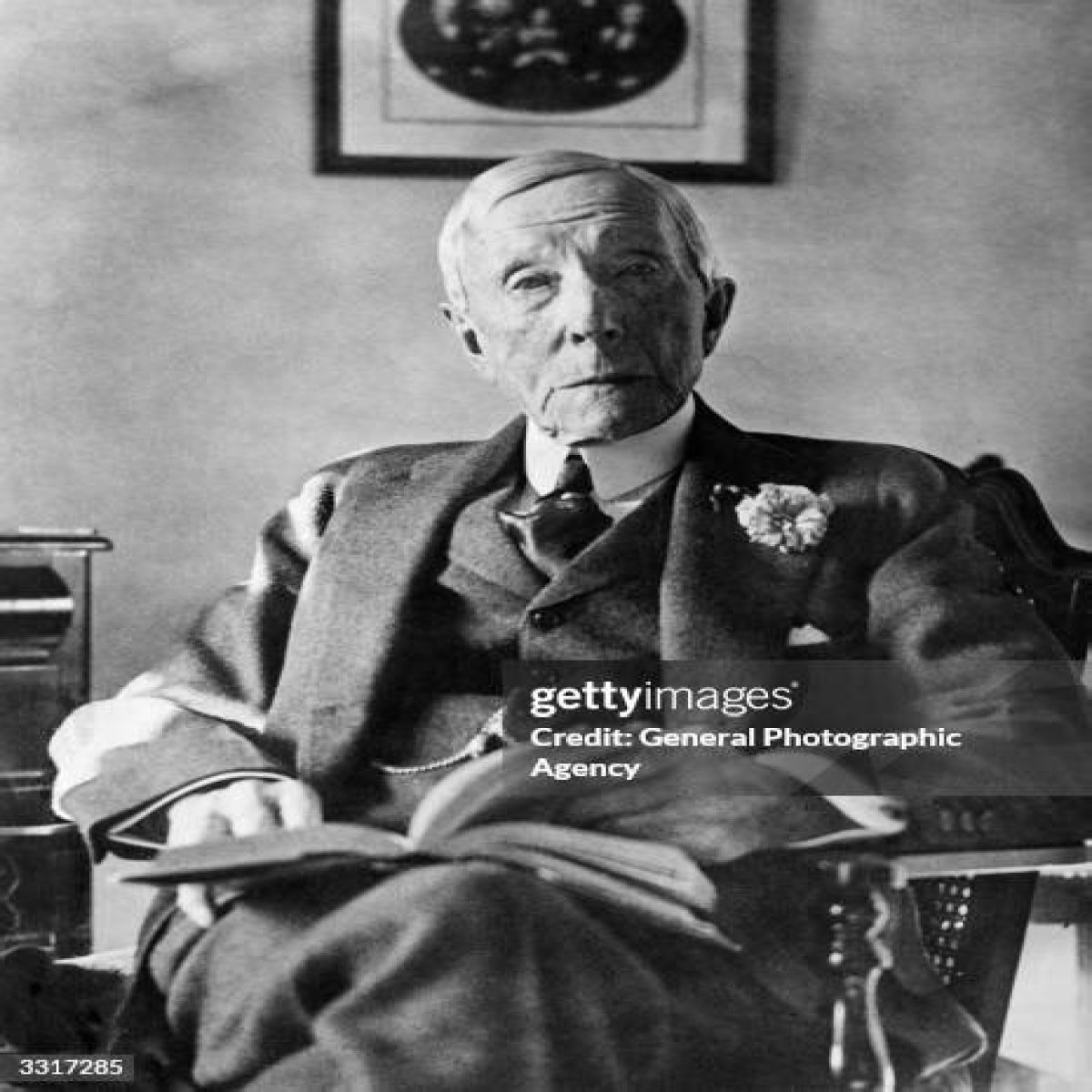Philanthropist John D. Rockefeller Jr. was the only son of John D. Rockefeller and heir to his fortune. He is known for building Rockefeller Center in New York City.
Synopsis
Born on January 29, 1874, in Cleveland, Ohio, John D. Rockefeller Jr. was a prominent American philanthropist and heir to the family fortune created by father John D. Rockefeller Sr., founder of Standard Oil. John D. Rockefeller Jr. created Rockefeller University in New York City, the General Education Board and the Rockefeller Foundation in the early 1900s. In funding the construction of Rockefeller Center, John Jr. created an estimated 75,000 jobs. During World War II, he helped establish the United Service Organizations. After the war, he donated land for the U.N. headquarters. He died in Arizona in 1960.
Early Years
Although John D. Rockefeller Sr. and Nelson Rockefeller typically occupy the spotlight of their family legacy, it was John D. Rockefeller Jr. who made the family name synonymous with philanthropy. Born on January 29, 1874, in Cleveland, Ohio, "Junior" grew up alongside three sisters: Alta, Bessie and Edith. His father, John D. Rockefeller Sr., was the nation's first billionaire, yet wealth didn't appeal to John Jr.
Homeschooled until the age of 10, John D. Rockefeller Jr. went on to attend Brown University. After graduating in 1897, he worked for his father at the Standard Oil headquarters in New York City. In the early 1900s, a series of scandals erupted at the company. Disenchanted, in 1910, John Jr. decided to leave the business world behind him in order to pursue philanthropic interests.
Public Life
It wasn't long after he left the company that John D. Rockefeller Jr. found himself embroiled in controversy. More than 2,000 miles away, at the Rockefeller-owned Colorado Fuel and Iron Company, a six-month strike had been raging: An estimated 9,000 coal miners were demanding union recognition, improved hours, wages and housing. The strike, which had begun in September 1913, became violent shortly thereafter, prompting Colorado Governor Elias Ammons to bring in the state National Guard. The strike continued into the winter, and matters escalated when miners and their families were evicted from their company homes, forced to live in tents throughout the winter months. By the spring of 1914, the situation had worsened; relationships had become hostile between Guard members and protesters, who refused to give in.
A tragic breaking point occurred in April 1914, when private security contractors opened fire on the tent colony. More than 40 miners and their family members were killed, including two women and 11 children.
A board member at the company, John D. Rockefeller Jr. was blamed for the violence at the Colorado Fuel and Iron Company, and was subsequently called to testify in front of Congress. Public opinion turned against the Rockefellers thereafter, as newspaper articles lambasted the heir to the Rockefeller legacy.
Undeterred, Rockefeller Jr. would spend years mired in the controversy, gradually restoring the family's public image through his philanthropic work. Along with his father, he helped create a number of philanthropic institutions, including the Rockefeller Institute, the General Education Board and the Rockefeller Foundation. He may be best known for creating Rockefeller Center in New York City, funding the restoration of Colonial Williamsburg and donating the land for the U.N. Headquarters.
In the years following World War I, John D. Rockefeller Jr. advocated for better industrial working conditions. During World War II, he helped establish the United Service Organizations, and raised more than $300 million to help men and women serving in the U.S. Armed Forces. He also donated extensively to conservation various projects, stretching from Acadia National Park in Maine to Yosemite National Park in California.
Private Life
In 1901, John D. Rockefeller Jr. married Abby Aldrich, a college classmate and the daughter of a prominent Rhode Island senator, Nelson W. Aldrich. John and Abby would go on to have six children together: a daughter, Abby (later known as Abby Rockefeller Mauzé), and five sons, John D. Rockefeller III, Nelson Rockefeller, Laurance Rockefeller, Winthrop Rockefeller and David Rockefeller.
Abby Aldrich Rockefeller died in 1948, and John D. Rockefeller Jr. later married Martha Baird Allen, a concert pianist. He died on May 11, 1960, in Tucson, Arizona.
